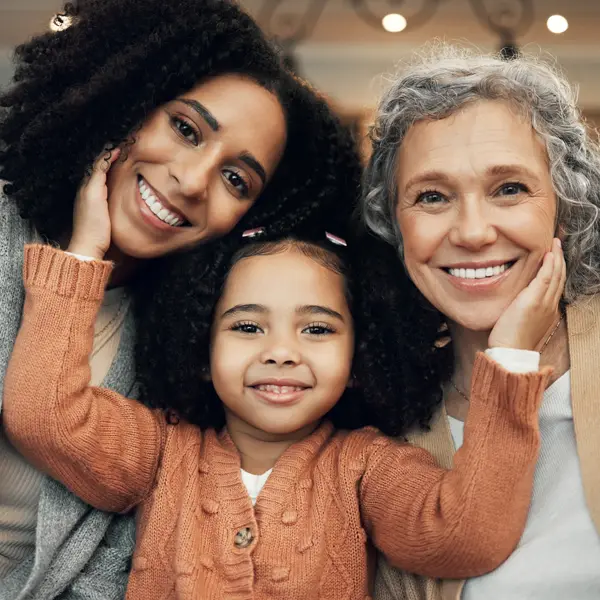
Make 2x the Impact Now
Make 2x the Impact Now
Our March Mission Match is underway, but not for long. Your gift by March 10 can go twice as far to advance research and help provide care and support for those living with Alzheimer’s and their caregivers.
Give NowKunle Adewale is using art engagement as a therapy for the older population as an Atlantic Fellow of Equity in Brain Health at the Global Brain Health Institute, University of California, San Francisco. Kunle spoke to us about his virtual event for The Longest Day and how the power of art can impact the lives of people living with Alzheimer’s and other dementia.
Bringing Light Through Art
Growing up in Nigeria, Kunle was inspired by comedian and actor Robin Williams, who was living with Lewy body dementia before his death. “This joyous man, a man who truly cared about others and shared his gifts: that is what life and art are all about.” Today, Kunle brings joy in his own special way.Entitled “Uplifting Spirits,” Kunle’s event focuses on the links between art, nature and aging, and its title holds a special meaning. “People are often treated like their lives are over when they receive a dementia diagnosis. I am using art to shift that narrative, celebrating the potential of people living with dementia. Who are they? What inspires them?” The first educational talk scheduled as part of his event is entitled “Changing the Narrative of Aging and Dementia Through the Lens of Art,” focused on advocacy and creating inspiration. “Art has the ability to change our perceptions about aging. Sometimes humans dwell in the realm of negativity. I always choose to look toward the light.”
Art as Therapy for Older Adults
Therapeutic art has an impact on both artists and those living with Alzheimer’s and other dementia. “When I engage with people with dementia, there is a joy that transmits to me and the people I am leading in art sessions. The sense of connectedness through creativity helps people express themselves. That is key. When people amplify their voice through creative outlets, they can improve their quality of life and engage, even after dementia has progressed.”
The arts can be a powerful force for the emotional and social well-being of people living with dementia, and artists like Kunle are offering support by facilitating virtual therapeutic art experiences for people who most need it. “It’s a great honor to be in the midst of global leaders who are changing the narrative around dementia across the world,” he said. “In working with the Alzheimer's Association’s Northern California and Northern Nevada Chapter to design and facilitate these virtual therapeutic art experiences, I have found that connecting is key.”
When his program was moved to the Zoom platform during the COVID-19 crisis, Kunle found that the results surpassed his wildest dreams. He has been thinking outside the box during these virtual sessions, including encouraging participants to create art with found objects, such as creating images of faces with items from inside their homes to create mixed media art pieces. “I have found that we are still able to make real connections virtually by the experience of creating and sharing our art. During this time, I have gained new insight into the lives and minds of people with dementia.”
Kunle always puts an emphasis on the concept of sharing in his sessions. “As a person from Africa, I am accepted by the people I lead in these sessions, and that is reciprocated. We all come to the class with our unique experiences and look forward to this sense of community. We are vulnerable, but we don’t talk about doctor’s reports or negative topics. Our focus is LIGHT. Our focus is joy. Our focus is to create memories during this time of crisis.”
The arts — whether drawing, dancing or singing — allow people to express themselves in ways words often cannot. “Arts become language, giving them strength in their own abilities. And it has a positive effect on caregivers, keeping the people they love feel capable, happy and expressive,” Kunle says.
Kunle reminds everyone that this is important for the world to unite, whether through art, conversation or action. “One of the best things that can ever happen to an artist is to keep an open mind and immerse themselves in creating works inspired by people, culture, environment and their own unique experiences. This is a time for empathy and compassion. It is the time for messages of hope, inspiring courage and resilience. This is the time to stand together and make this world a better place.”
About: Kunle is a graduate of Obafemi Awolowo University, Ile-Ife Nigeria. He is a certified artist in Understanding Arts and Dementia (University College London, UK) and in Medicine and The Arts (University of Cape Town, South Africa) and studied civic leadership at Tulane University.
Kunle has always been passionate about giving back to the community, both in Nigeria and around the world. Through virtual art sessons, Kunle works to help to reduce social isolation and foster social interactions with the older population in an inclusive environment. Learn more about Kunle’s involvement with GBHI, his nonprofit Tender Arts Nigeria and visit his fundraising page for The Longest Day. Find more of Kunle’s art on his personal website & view the virtual art exhibition.
The first photo featured in this piece is Kunle with Robin Williams' widow, Susan Schneider.
Related articles:
The Longest Day
Alzheimer’s, Art and Music
Lewy-Body Dementia
